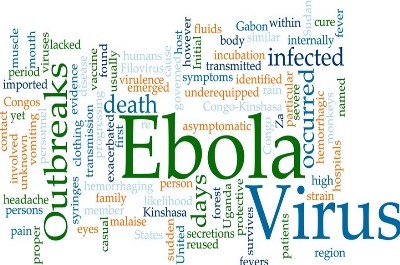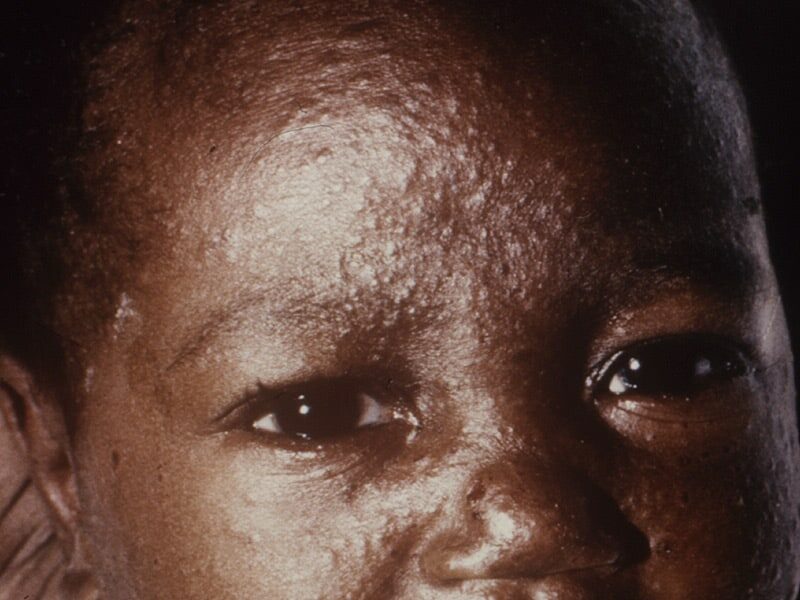Like the Rebel war like the Ebola war; the reflections of an eyewitness
“Operation Octopus”, “Operation Barras”, “Operation Final Push”. These were some of the code names for specific military assaults against the Revolutionary United Front during Sierra Leone’s civil war. Not to be undone in ‘operational expressions’, the rebels also declared their own operations- we would not forget that infamous macabre “Operation No living Thing!”
Over a decade after that civil war, we are witnessing the implementation of special operations for a different kind of war: the professed war against the invisible but arguably a more lethal enemy: the Ebola Virus Disease. We have had “Operation Ose to Ose Ebola Talk” and on 17th December, 2014, President Koroma declared “Operation Western Area Surge”. I have the feeling that like the rebels, this enemy has also declared its own “Operation Upset Everyone”.
While, ahead of the festivities, health authorities and government continually remind Sierra Leoneans of the Public State of Emergency and its implications for the public; the death of Dr. Victor Willoughby, one of Sierra Leone’s “medical colossus” in the morning of 18th December, 2014 has caused anguish among many people in the Western Area and abroad. Like the rebel war, the Ebola incursion has not only inflicted economic hardship upon Sierra Leoneans, it has also killed many of them and taken the ‘life’ out of the survivors by making it hard for them to reintegrate into their communities. This is also a metaphorical throwback to the civil war year, when people who had been held hostage by the rebels found it similarly difficult to be accepted back into broader society.
Indeed, this epidemic bears some of the hallmarks of the civil war! President Koroma calls it “a war with a vicious enemy”. Their similarities abound. Like the rebel war, the initial local response to the outbreak was bungled and lackadaisical. Also, the world community initially regarded the outbreak as Sierra Leone’s problem and looked on while the country-side was ravaged. International action and even national consciousness were only aroused when the horror and brutality of the virus besieged the cities and wrecked even more agony.
Eventually, and like the war, the world responded and now everyone else is here; the Nigerians, Chinese, the Americans, the Cubans, the Italians. The British too are here with a war ship, man and machine building treatment and holding centers- in the place of Operation Barass, the Chinooks and artilleries. The United Nations is also here as UNMEER in the place of UNOMSIL and its war paraphernalia. But like the rebel war, the mandate was as inadequate as was the initial response. Lack of proper coordination, international politics, anxiety and fear competed with reason in driving the actions. Thankfully, things are looking better now.
The trouble is, like the war, before Foday Sankoh attacked in 1991, the military was already in a bad state of preparedness. In this war, the health sector was already badly under resourced especially regarding the number of specialists working in public health facilities. According to the Ministry of Health and Sanitation (MOHS), there were only 72 Registered Nurses, 47 Public Health Nurses, 12 Ophthalmic Nurses, 56 Nurse Anesthetists and 206 Community Health Nurses for a population of about 6,000,000. Human resource constraint was not the only ailment of the sector; poor conditions of service were also quite formidable.
The sector also faced serious logistical challenges. For example, there were only 50 ambulances, 24 secondary hospitals and 9 referral hospitals (sic). Critical equipment like dialysis machines and other diagnostic equipment were just almost non-existent. The few laboratories that existed were either poorly manned or poorly equipped. Certainly, there was only one laboratory capable of testing for Ebola! The list goes on and on; and although a whole directorate existed, structures for disease surveillance, prevention and control were largely only on paper.
And, like the rebel war, corruption has also reared its ugly head. There are concerns raised in many quarters that monies and other resources meant to keep the enemy at bay are reportedly being mismanaged, misappropriated and brazenly diverted to personal use. The Chief Executive Officer of the National Ebla Response Center recently complained about sleaze affecting to fight to defeat the epidemic.
There is also the public weariness and impatience, understandably so, adding its own Philip to the cocktail of the overall confusion. Just as they did during the war, the panic-stricken masses are running away from the brutal enemy; sometimes in the thick night or the foul hours of the morning. As it did for the rebels’ advance, this nocturnal movement is providing cover for the virus to spread.
Not a surprise therefore that, when this particularly virulent disease broke out, it was like the rebel war; the health workers were ill prepared, ill trained, ill-equipped and ill motivated. So, like the war, even though the disease started in the remote parts of Kailahun, in the eastern part of the country, it literally marched on all the way to the cities. During the war, soldiers dropped their outdated weapons and abdicated their positions. In the face of the Ebola onslaught, while many are resisting and bravely confronting this lethal invisible enemy, some of the health workers have had cause to abandon their posts.
This evil Ebola invaded Sierra Leone and targeted health workers, particularly nurses and doctors. Nearly 200 of them have died. The nurses have borne the brunt of it; over 130 of them have lost their lives. Some of the surviving ones now appear to be watching over their shoulders. The nurses are very worried for many reasons; the high death toll is very demoralizing – the death-sentence type of situation that once they get infected, it is almost certain that they would die- strikes fear even in the bravest of them! This is because nurses are more exposed to the virus. Before a doctor sees a patient, several nurses would have carried out preliminary assessments. After the doctor would have seen the patient, it is the nurses again that would administer treatment and give care. But the calamity that has befallen the nurses has been muffled in the uproar over the loss of the doctors. The nurses’ demise is reported just as a statistic; they are the unsung heroes and heroines. The sad reality is that some have figured out that it is better to stay alive than to become an unsung hero. The consequence could be that, rather than going the extra mile to serve, they might choose the option of taking extra caution.
For the doctors, the history is as woeful as the current situation is devastating. Figures from the MOHS show that there were only 3 physicians, 1 pathologist, 4 surgeon specialists, 3 obstetricians/gynecologists and 2 pediatricians in the public service. Now majority of these 11 highly qualified fallen heroes and heroines- snatched away by this monster virus- were from the public health facilities.
* DR. VICTOR WILLOUGHBY- Died 18th December 2014 * DR. SOLOMON AIAH KONOYEIMA – Died 6th December 2014 * DR. THOMAS T. ROGERS – Died 5th December 2014 * DR. DAUDA KOROMA – Died 5th December 2014 * DR. MICHAEL KARGBO – Died 18th November 2014 * DR. MARTIN MAADA SALIA – Died 17th November 2014 * DR. GODFREY GEORGE – Died 3rd November 2014 * DR. OLIVETTE BUCK – Died 14th September 2014 * DR. SAHR J. ROGERS – Died 27thor 30th August 2014 * DR. MODUPEH COLE – Died 13th August 2014 * DR. SHEIKH UMAR KHAN – Died 29th July 2014May their souls rest in peace!
It is estimated that it takes an average of 15 years (in the UK) and US to train one specialist doctor. Now all of these have gone in just a few months; some between just a few hours of each other’s passing. Three of them; Dr. Salia, Dr. Konoyimah and Dr. Kargbo died within 48 hours. This brutality inflicted upon Sierra Leone’s “already compromised health sector” only means that the effort at strengthening the country’s health care service delivery system has been reversed several years.
There have been some efforts to strengthen the health sector and health service delivery. The Free Health Care Initiative was introduced, salaries of health workers increased. Through the World Bank funded Reproductive and Child Health Project, incentives are provided for the satisfactory delivery of certain key services. The project also makes provision for essential drugs, running water, electricity, delivery beds and accessories and basic laboratory materials. The budget allocation (local and foreign) to the health sector and disbursements to the District Health Management Teams have been increasing substantially over the years.
However, years of neglect and the familiar challenges of accountability and capacity among others, mean that over 10 years after the rebel war, Sierra Leone is still bedeviled by some of those harrowing and damning circumstances that have become characteristic of the country’s misfortunes.
Like the rebel war, the collateral and direct damage of this devastation on Sierra Leone could only be determined after this war would have been won. But for that victory to be achieved soon, Sierra Leone needs more than just an attitude change; it needs a complete change of mindset in public, private and ordinary life of its people- it is everybody’s call!
By: Sheriff Mahmud Ismail
Stay with Sierra Express Media, for your trusted place in news!
© 2014, https:. All rights reserved.






